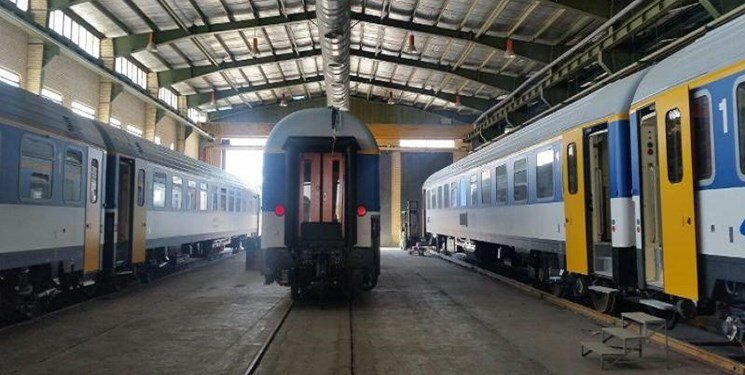Domestic companies to renovate 124 passenger wagons

TEHRAN – As the passenger wing of the Islamic Republic of Iran Railways (RAI), Iranian Raja Railway Transport Company has signed deals with three domestic companies for renovating 124 passenger wagons, ILNA reported on Tuesday.
According to Ali Dastjerdi, head of the Tourism Holding of Social Security Organization (known as Hegta), RAJA has signed agreements with three different Iranian companies namely Wagon Pars, Novin Sanat Raja Company and Ehya Sanat Co. for renovating 124 of its passenger wagons that are over 30 years old.
Raja has also signed a deal with Wagon Pars Company for manufacturing of 41 passenger wagons, of which 33 wagons have been handed to RAJA.
RAJA is a subsidiary of the Islamic Republic of Iran Railways (known as RAI) which manages its passenger trains.
Earlier this week, 213 new domestically-made locomotives and wagons were added to the railway fleet of Iran in a ceremony.
During the ceremony, Saied Rasouli, the head of RAI, said that the number of domestically produced locomotives and wagons has increased by 58 percent, adding that according to a memorandum signed last year with the Budget and Planning Organization (BPO), by the end of the next Iranian calendar year (March 2021) another 974 locomotives will be added to the country’s rail fleet.
Back in June, Rasouli had announced that 20 trillion rials (about $476.2 million) has been allocated for renovation of 1000 passenger and freight wagons and also locomotives in the current Iranian calendar year (began on March 21).
He said this amount has been allocated by the Planning and Budget Organization.
In this year, which is named as the year of "Pickup in Production" by the Supreme Leader Ayatollah Seyed Ali Khamenei, all efforts of RAI are for renovating the railway fleet of the country by relying on domestic producers, the official further stressed.
According to Saeed Mohammadzadeh, the previous head of RAI, development of Iranian railways requires more than 32,000 wagons and locomotives in the next four years when the railway infrastructures are developed in the country.
EF/MA
